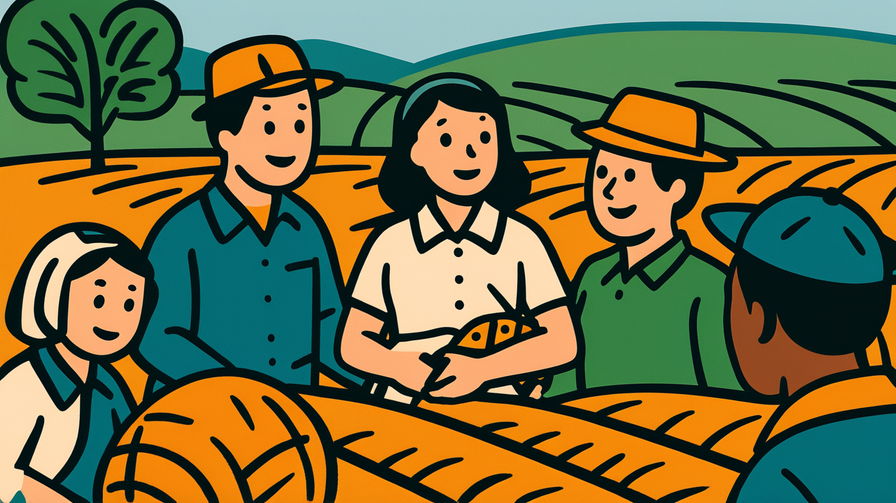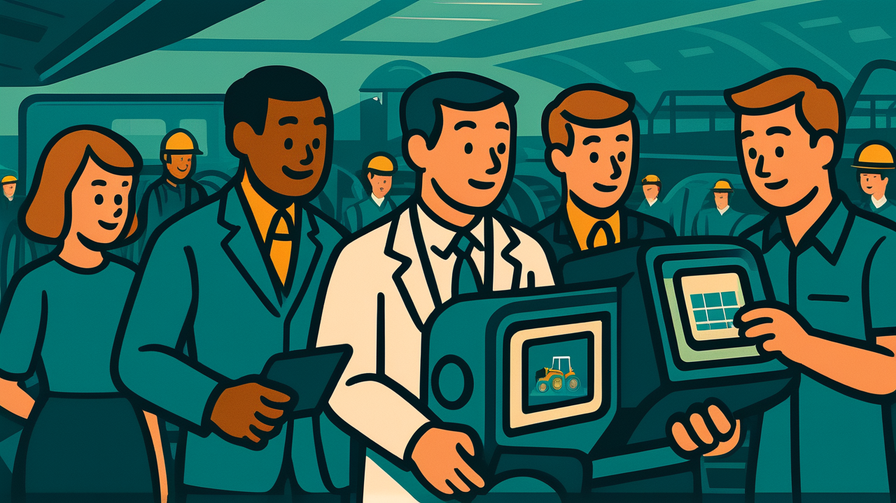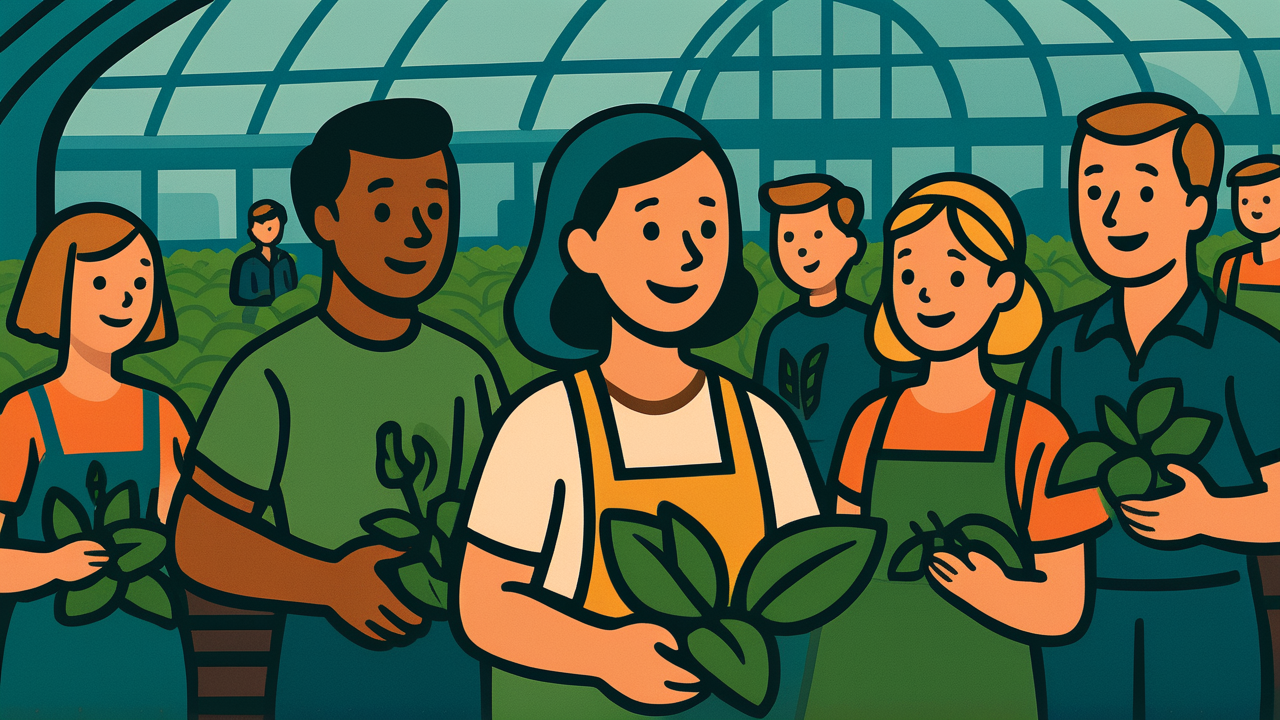[Disclaimer] This article is reconstructed based on information from external sources. Please verify the original source before referring to this content.
News Summary
The following content was published online. A translated summary is presented below. See the source for details.
KUBOTA AGRI FRONT is an innovative agricultural learning facility in Japan that brings together farmers, technology developers, food distributors, and consumers to explore the future of food and agriculture. The center offers hands-on experiences including summer programs featuring sausage-making workshops with Nippon Ham, science cafés with Hokkaido University professors, and hydroponic lettuce growing experiments for students. The facility includes a café serving locally-sourced ingredients and hosts events throughout the year. Recent activities include remote tractor operation demonstrations, collaborations with agricultural schools for product development, and partnerships with universities to advance agricultural education and regional development.
Source: Kubota Corporation
Our Commentary
Background and Context

Imagine a place where you can drive a tractor using a PlayStation-style controller, make your own sausages, and grow lettuce without soil – all while learning about the future of food. That’s KUBOTA AGRI FRONT, Japan’s cutting-edge agricultural learning center!
Kubota Corporation, founded in 1890, started by making water pipes to fight cholera outbreaks. Today, they’re one of the world’s largest agricultural machinery companies. Their motto “For Earth, For Life” reflects their mission to solve global food, water, and environmental challenges.
Japan faces unique agricultural challenges: an aging farmer population (average age over 67!), limited farmland, and increasing food import dependence. KUBOTA AGRI FRONT represents Japan’s innovative response – making farming cool and accessible to younger generations through technology and hands-on experiences.
Expert Analysis
KUBOTA AGRI FRONT exemplifies Society 5.0 – Japan’s vision of integrating cutting-edge technology with human-centered solutions. The facility demonstrates several key agricultural innovations:
• Smart farming technology: Remote-controlled tractors and AI-powered crop monitoring
• Vertical farming: Growing crops in stacked layers using minimal space and water
• Hydroponics: Soil-free cultivation using nutrient-rich water solutions
• Farm-to-table integration: Direct connections between producers and consumers
By combining education with entertainment (“edutainment”), the facility makes agricultural careers attractive to young people who might otherwise never consider farming.
Additional Data and Fact Reinforcement
The facility’s impact extends beyond individual visitors:
• Partnerships with Hokkaido University and Rakuno Gakuen University bring academic research to practical applications
• Collaboration with Hokkaido Mikasa High School resulted in innovative lettuce burger development
• Summer programs attract over 1,000 students annually, inspiring future agricultural professionals
• The facility’s café sources ingredients from local farmers, supporting regional agriculture
These initiatives address Japan’s goal to increase food self-sufficiency from the current 38% to 45% by 2030, while also creating a new generation of tech-savvy farmers.
Related News
KUBOTA AGRI FRONT connects to broader trends in global agriculture. Similar facilities are emerging worldwide as countries face food security challenges. Singapore’s “30 by 30” initiative aims to produce 30% of nutritional needs locally by 2030 using vertical farms. The Netherlands, despite being tiny, is the world’s second-largest food exporter thanks to high-tech greenhouses.
In Japan, the facility complements government programs promoting “smart agriculture” and attracting young farmers through subsidies and training programs. Major league baseball team Hokkaido Nippon-Ham Fighters partnered with Kubota, hosting “AGRI WEEK” at their stadium to further popularize agricultural innovation.
Summary

KUBOTA AGRI FRONT represents more than just a learning center – it’s a glimpse into agriculture’s high-tech future. By making farming interactive, fun, and technologically advanced, it challenges stereotypes about agricultural work being outdated or difficult.
For students interested in science, technology, sustainability, or food, facilities like this show exciting career possibilities. Future farmers might spend more time programming drones and analyzing data than driving tractors. The fusion of technology and tradition creates opportunities for innovation while preserving agricultural heritage.
As global population reaches 10 billion by 2050, we’ll need creative solutions to feed everyone sustainably. KUBOTA AGRI FRONT demonstrates how education, technology, and community engagement can transform agriculture from a declining industry into an exciting frontier for innovation.
Public Reaction
Visitors express surprise and excitement about modern farming possibilities. Parents report children showing newfound interest in science and agriculture after hands-on experiences. One Tokyo mother shared: “My daughter thought farming was just dirt and sweat. After controlling a tractor remotely and growing her own lettuce, she wants to study agricultural engineering!”
Local farmers initially skeptical about “city people playing farmer” now actively participate as instructors, sharing traditional knowledge while learning new technologies. The intergenerational exchange has created unexpected community bonds.
Frequently Asked Questions
Q: Can anyone visit KUBOTA AGRI FRONT?
A: Yes! The facility is open to everyone, with special programs for students, families, and agricultural professionals. Many activities are free or low-cost.
Q: Do I need farming experience to participate?
A: Not at all! Programs are designed for complete beginners, making agriculture accessible to urban residents who’ve never seen a farm.
Q: How does this relate to solving world hunger?
A: By training future farmers in efficient, sustainable techniques and making agriculture attractive to young people, facilities like this help ensure food security for future generations.


